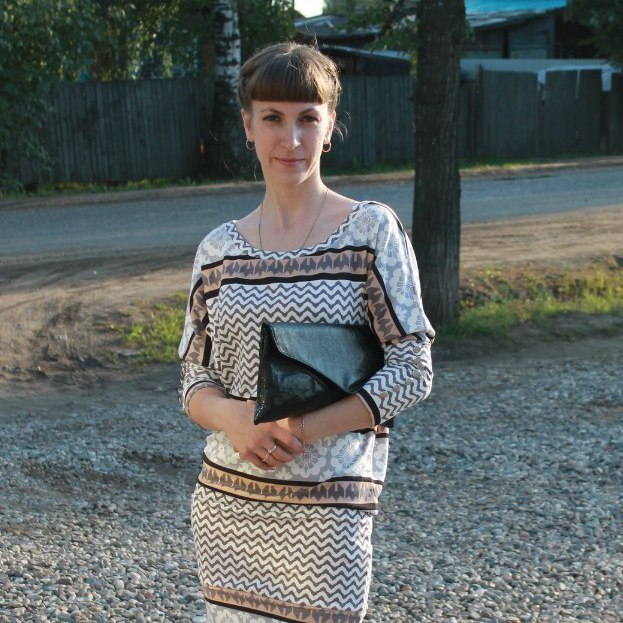






это быстро и бесплатно

Оформите заказ сейчас и получите скидку 100 руб.!
ID (номер) заказа
1928705
Ознакомительный фрагмент работы:
Abstract: the present article is devoted to the use of board games in the foreign language lessons in primary school as a means of forming socio-cultural competence.
Key words: secondary language personality, world cultural community, intercultural communication, culture, socio-cultural approach, cross-cultural competence, board games.
Until recently, the main goal of the foreign language teaching was to form a secondary language personality ready to communicate in a foreign language. Currently, this goal has changed somewhat. Nowadays a school graduate must be ready to integrate into the world cultural community. The formation and development of a secondary language personality, ready for intercultural communication, is not possible without knowledge of the culture and traditions of the country whose language is being studied.
According to V.S. Stepin, an outstanding Russian scientist and professor, culture is a complex and multifaceted object of scientific knowledge. The scientist defines culture as “a system of historically developing supra-biological programs of human activity (activity, behavior and communication) that ensure the reproduction and change of social life in all its main manifestations. These programs are represented in the culture by a variety of knowledge, norms, skills, ideals, patterns of activity, behavior, ideas, hypotheses, value orientations, etc. They form a historically accumulated social experience” [1, p. 11].
Thus, since one of the main tasks of teaching a foreign language in schools is the formation and development of pupils’ skills and abilities to implement intercultural communication, it seems necessary to include information of a country-specific nature in each lesson of a foreign language. S.G. Ter-Minasova notes, “languages should be studied in inseparable unity with the world and culture of the peoples who speak these languages” [2, p. 27]. In this regard, there is a need to apply a socio-cultural approach to teaching foreign languages, which was proposed by a number of Russian scientists (V.V. Safonova, V.P. Sysoev, I.L. Bim and many others). First of all, the socio-cultural approach to language teaching means “communication-oriented foreign language teaching that is closely related to the use of language as a means of learning the world and national culture, subculture of the country of the language being studied, the spiritual heritage of countries and peoples, and ways to achieve intercultural understanding. Teaching foreign language communication is conducted in the context of a dialogue of cultures, taking into account differences in the socio-cultural perception of the world” [3, p. 287]. The aim of this approach is the formation of cross-cultural competence of pupils and their preparation for full communicative act involving the knowledge of linguistic (vocabulary, grammar, etc.) and non-linguistic (non-verbal gestures, etiquette, etc.) material.
It should be noted that the problem of forming cross-cultural competence is reflected in the new Federal State Educational Standards. Moreover, it is one of the main goals of teaching foreign languages.
The modern educational system in Russia implies teaching a foreign language starting from the second grade of primary school. The younger the learners who are to be taught a foreign language, the more urgent the problem of finding effective teaching tools becomes. According to many experts in psychology and pedagogy, one of the most effective means of teaching children is a game.
A game is one of the most amazing phenomena of human existence. A game exists as long as a person exists. Its history goes thousands of years back and it is an integral part of human life, starting from the earliest childhood. There is not a single nation whose culture does not include a variety of games that are used to raise and educate children. A game as a magic box for centuries accumulates customs, traditions, cultural characteristics and characteristics of a particular nation, passing on all this “wealth” to subsequent generations. It is a socio-pedagogical phenomenon, the role of which in the formation of personality is difficult to overestimate.
V.A. Slastenin points out that a game is “a type of activity in situations aimed at recreating and assimilating social experience, in which self-management of behavior is formed and improved” [4, p. 128].
There are many games and their classifications. The games used in the educational process are commonly called pedagogical (educational) games. One of the most popular types of educational games in the foreign language lessons among primary school children is a board game.
Board games have a great educational capacity. A distinctive feature of board games is the “live” joint communication of players, which takes place in an unusual environment – simulated reality, recreated due to the rules, game attributes, the participants’ imagination and the authors’ talents. Board games have a wide variety, colorful design and the ability to involve many participants in a limited space.
Today, board games are often used in the foreign language lessons in primary school. They help not only to learn phonetics, vocabulary, grammar and other language aspects, but also to get acquainted with the peculiarities and culture of the countries where this language is spoken. In other words, board games contribute to the formation of cross-cultural competence among primary school children. At this stage the development of cross-cultural competence includes learning the names of the countries where the studied language is spoked, gaining basic cultural knowledge about them and developing an understanding of the realities and culture of native speakers. Primary school children also learn basic norms of speech etiquette common in the countries of studied language, learn to rely on these norms in various situations of interpersonal and intercultural communication, and learn to represent their culture through the foreign language.
An important aspect in the use of board games in the foreign language lesson is their correct organization. First of all, pupils should be psychologically and intellectually ready to participate in the game. Game actions should be conducted in an environment that creates a happy mood, a disposition to communicate, there should be an atmosphere of mutual understanding, mutual respect and cooperation.
In addition, board games should correspond to the age of its participants, should arouse their interest and be meaningful for them. In other words, all game actions should be based on the knowledge, skills and abilities that pupils have acquired earlier in the course of learning the language, as well as provide pupils with the opportunity to make rational and effective decisions, while giving a critical assessment of their actions and those of others.
Thus, board games have huge educational capacity. They can be organized in different ways, but each of them has a positive impact on the educational process, contributing to the comprehensive development of pupils, the formation and development of their intellectual abilities, memorizing the studied language material, getting acquainted with the cultures of other countries, etc.
References:
Stepin V.S. Civilization and culture / V.S. Stepin. – SPb.: SPbGUP, 2011. – 408 p.
Ter-Minasova S.G. Language and intercultural communication / S.G. Ter-Minasova. – M.: Slovo, 2000. – 146 p.
Azimov E.G. New dictionary of methodological terms and concepts (theory and practice of language teaching) / E.G. Azimov, A.N. Shchukin. – Moscow: ICARUS Publishing house, 2009. – 448 p.
Slastenin V.A. Pedagogy: a textbook for students of higher educational institutions / V.A. Slastenin, I.F. Isaev, E.N. Shiyanov. – Moscow: Publishing center “Academy”, 2002. – 576 p.
Сделайте индивидуальный заказ на нашем сервисе. Там эксперты помогают с учебой без посредников ![]() Разместите задание – сайт бесплатно отправит его исполнителя, и они предложат цены.
Разместите задание – сайт бесплатно отправит его исполнителя, и они предложат цены.
Цены ниже, чем в агентствах и у конкурентов
Вы работаете с экспертами напрямую. Поэтому стоимость работ приятно вас удивит
Бесплатные доработки и консультации
Исполнитель внесет нужные правки в работу по вашему требованию без доплат. Корректировки в максимально короткие сроки
Гарантируем возврат
Если работа вас не устроит – мы вернем 100% суммы заказа
Техподдержка 7 дней в неделю
Наши менеджеры всегда на связи и оперативно решат любую проблему
Строгий отбор экспертов
К работе допускаются только проверенные специалисты с высшим образованием. Проверяем диплом на оценки «хорошо» и «отлично»
Работы выполняют эксперты в своём деле. Они ценят свою репутацию, поэтому результат выполненной работы гарантирован ![]()









































Ежедневно эксперты готовы работать над 1000 заданиями. Контролируйте процесс написания работы в режиме онлайн ![]()
Приемы развития мышления младших школьников во внеурочной деятельности...
Курсовая, Психология
Срок сдачи к 27 апр.
Регулирование работы с обращениями граждан в регионах Российской Федерации
Курсовая, Организация работы с обращениями граждан
Срок сдачи к 7 мая
Выполнение контрольной работы в сооответствии с методичкой
Контрольная, технология машиностроения
Срок сдачи к 30 апр.
Исследование возможностей и особенностей работы с контейнеризацией на...
Курсовая, Операционные системы
Срок сдачи к 15 мая
-
Контрольная, Комплексная механизация и автоматизация погрузочно - разгрузочных и складских работ
Срок сдачи к 1 мая
Курсовая, курсовая работа. технологическое оборудование газонефтепроводов и газонефтехранилищ. спо. 2018
Курсовая, Технический
Срок сдачи к 5 мая
К этой лабораторной уже было 2 задания
Лабораторная, Проектирование архитектуры программных систем
Срок сдачи к 29 апр.
Нужно найти 2 художественных произведения или книги
Другое, стилистика и анализ текста, лингвистика
Срок сдачи к 2 мая
Эссе об исследованиях или прикладных проектах в междисциплинарном /...
Эссе, Психология
Срок сдачи к 27 апр.
Заполните форму и узнайте цену на индивидуальную работу!






